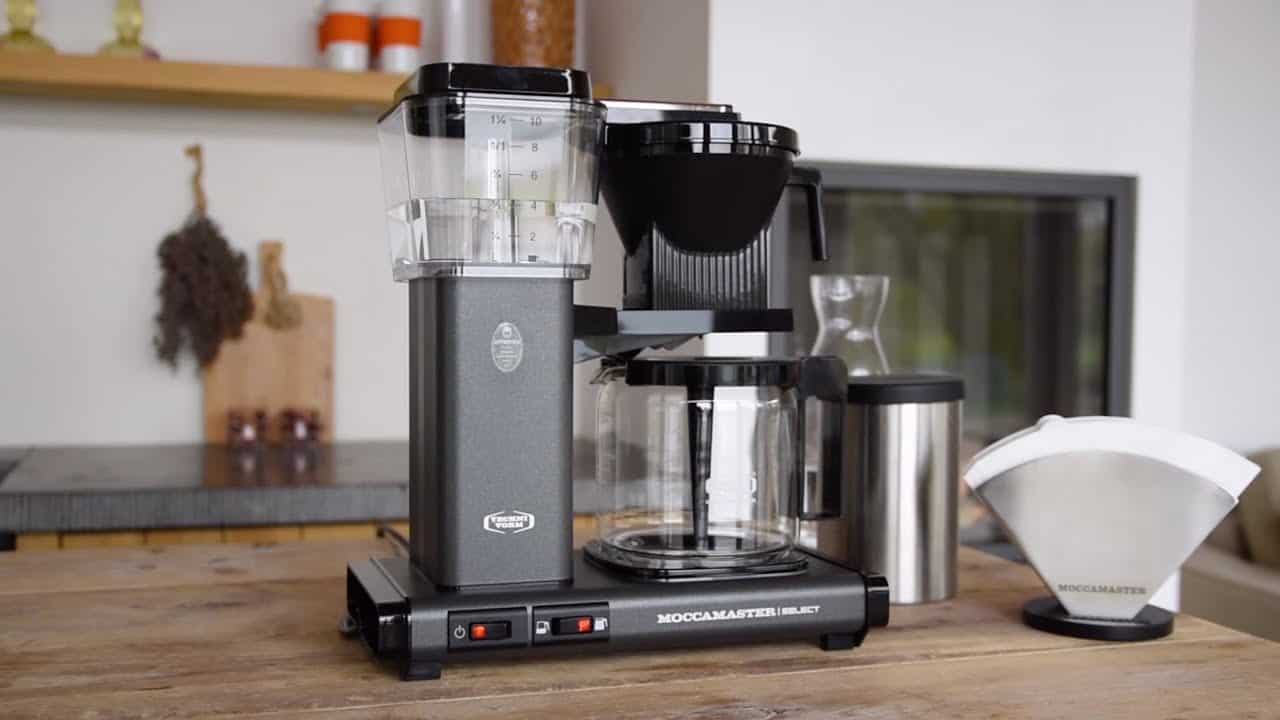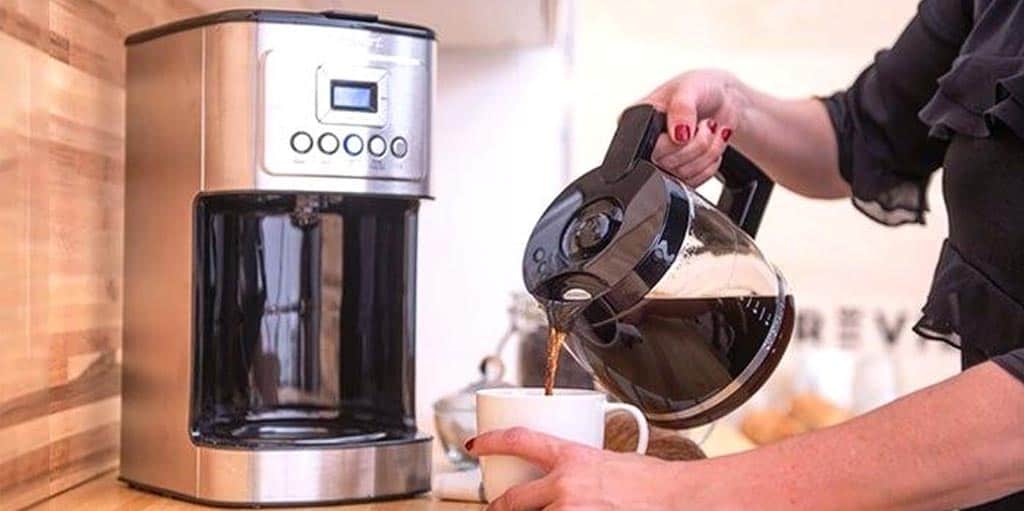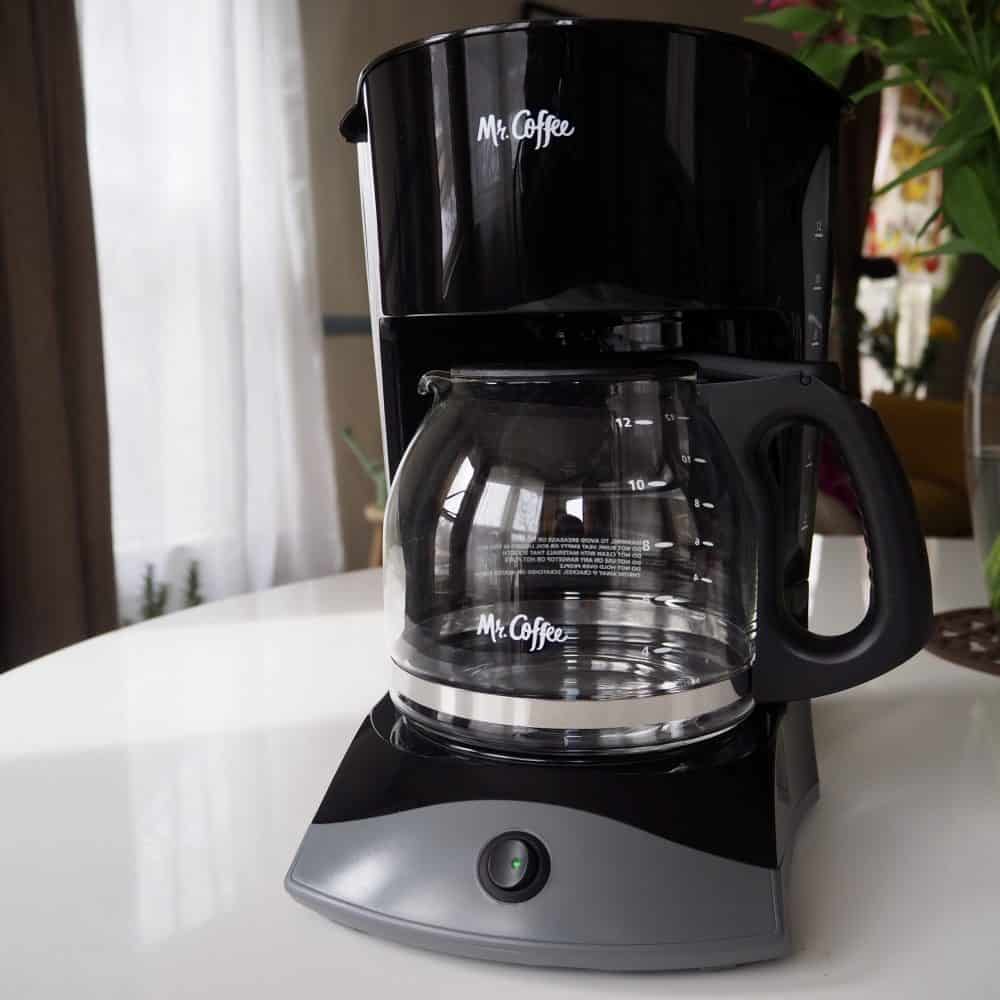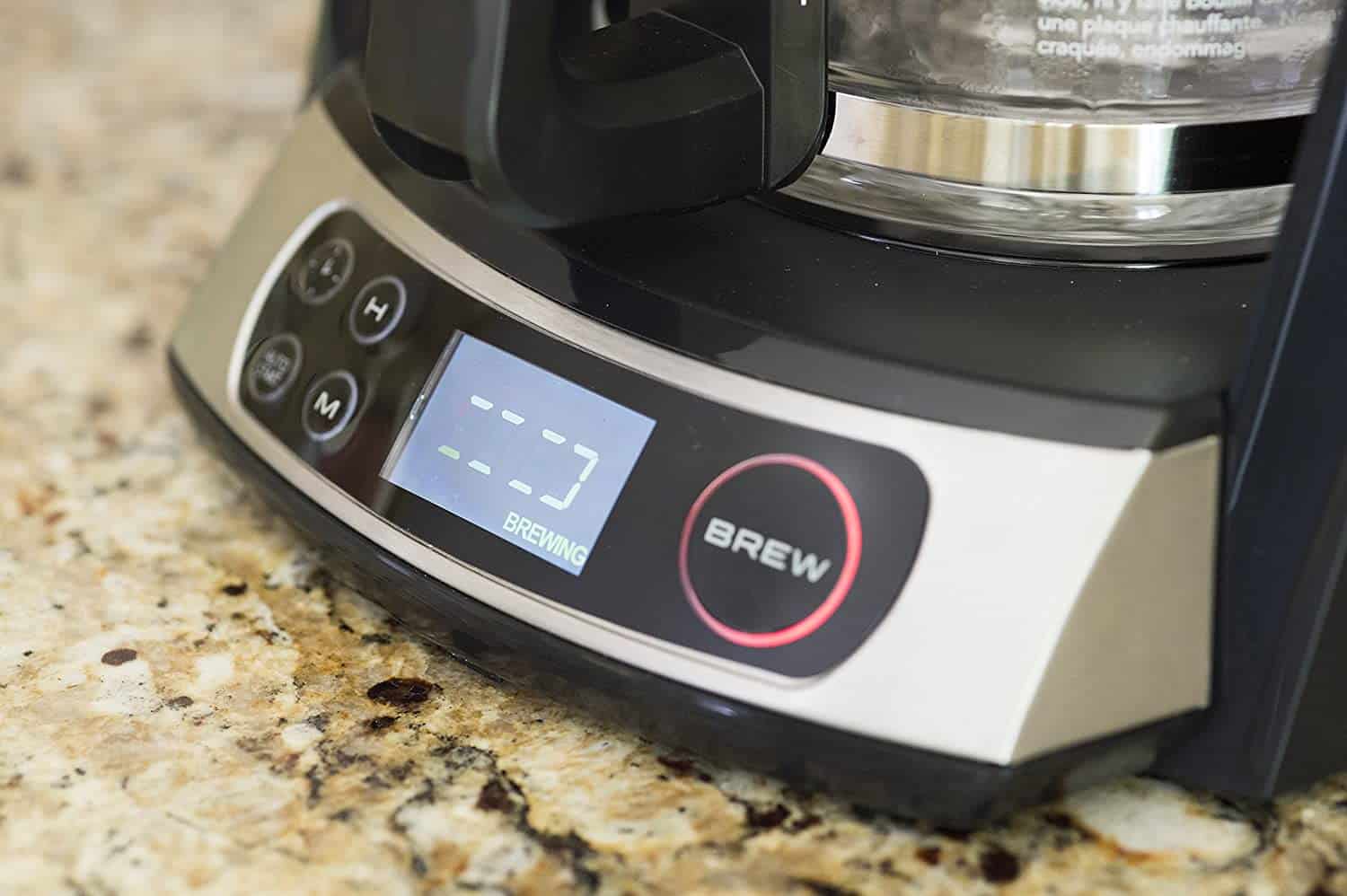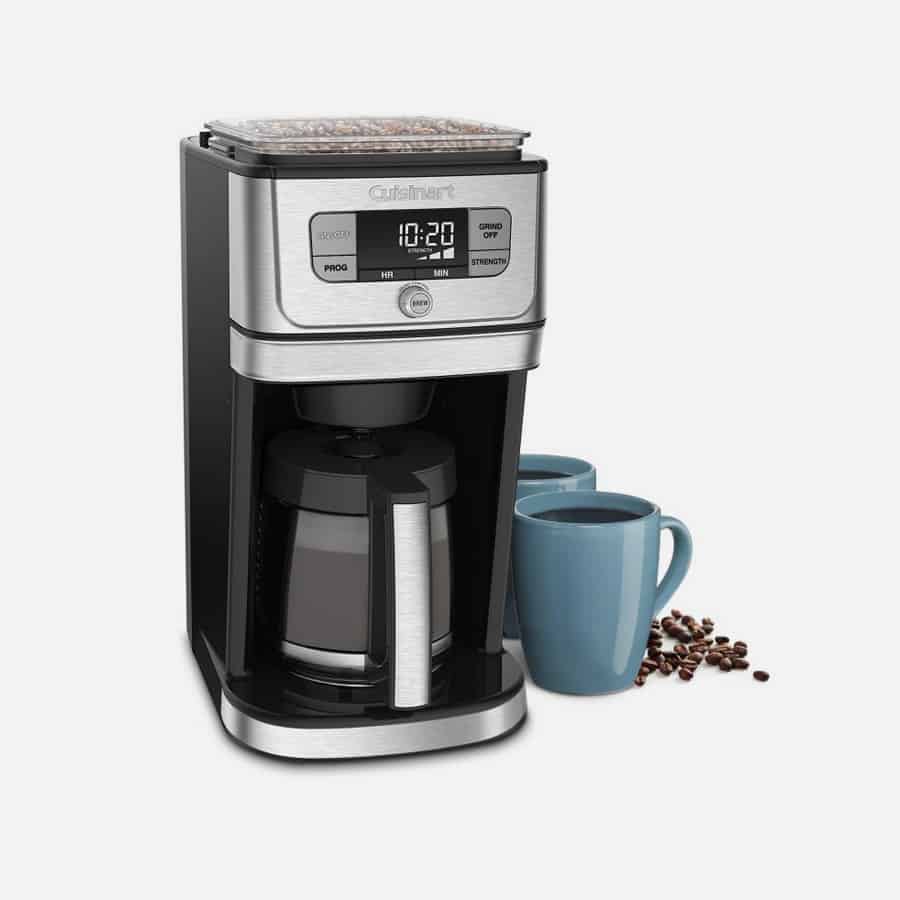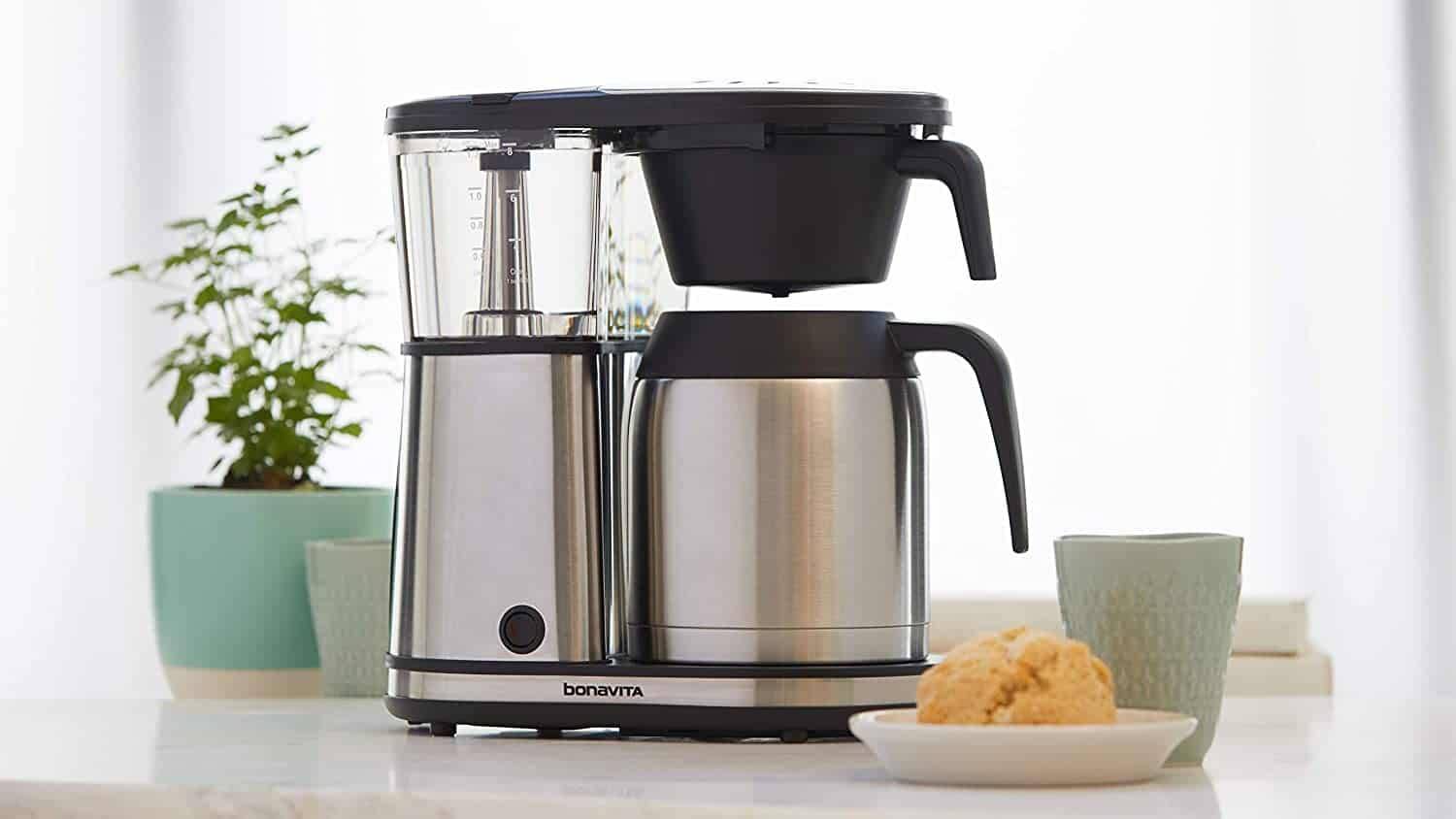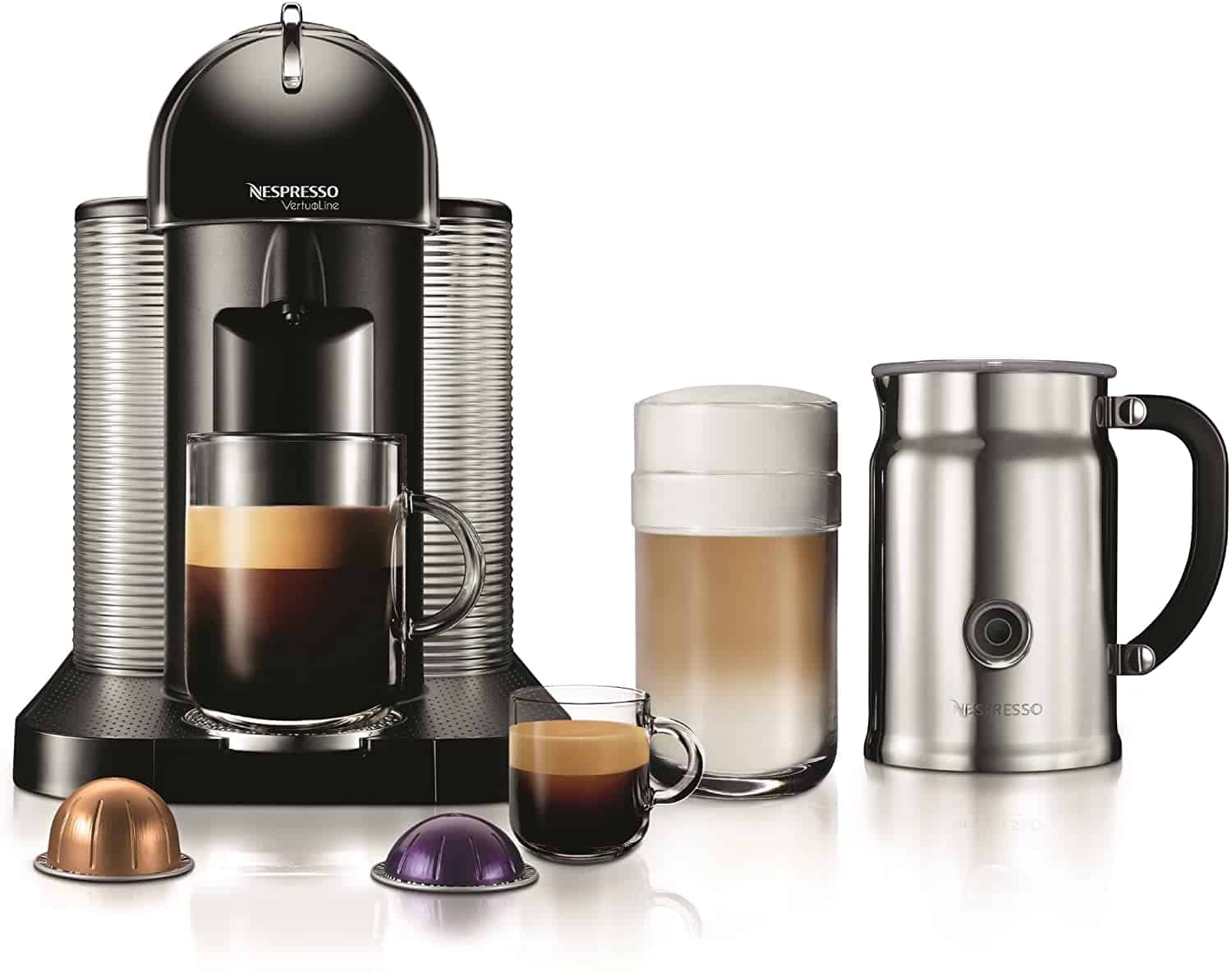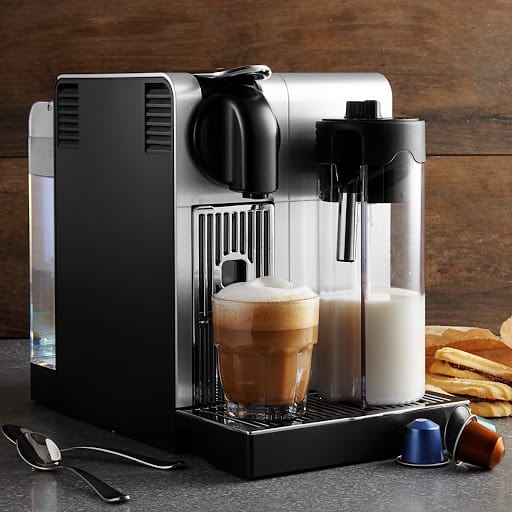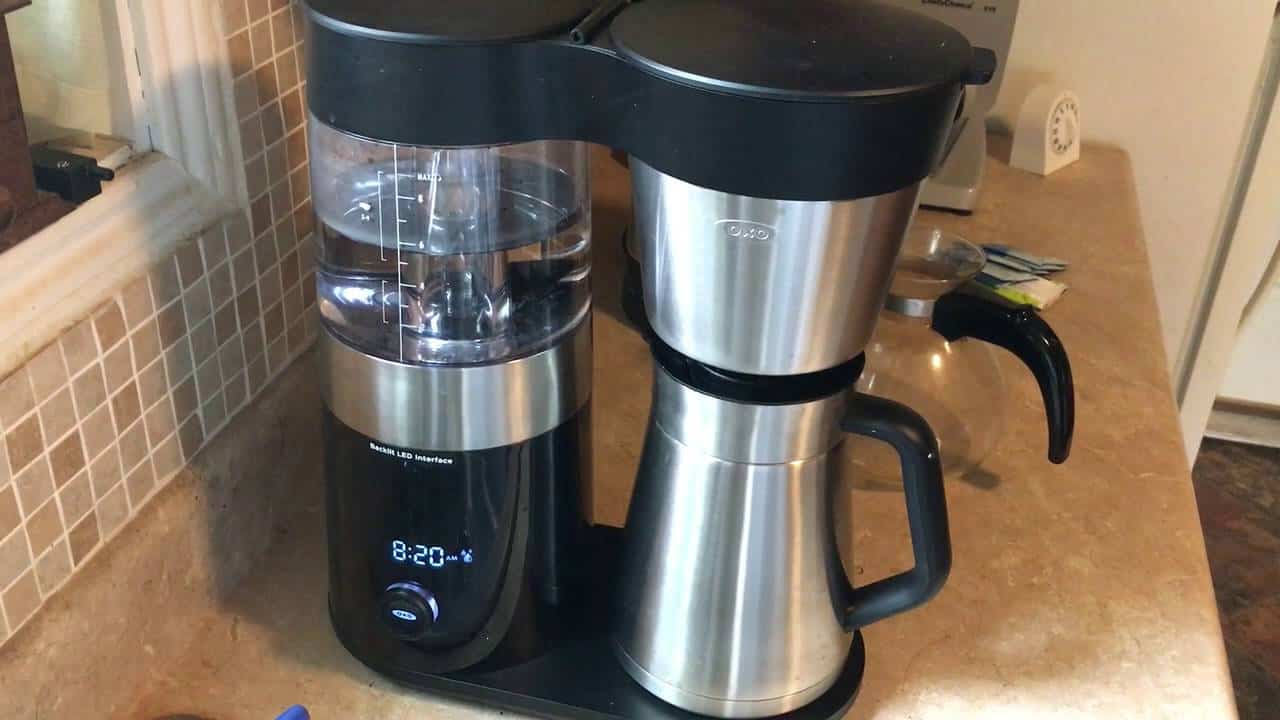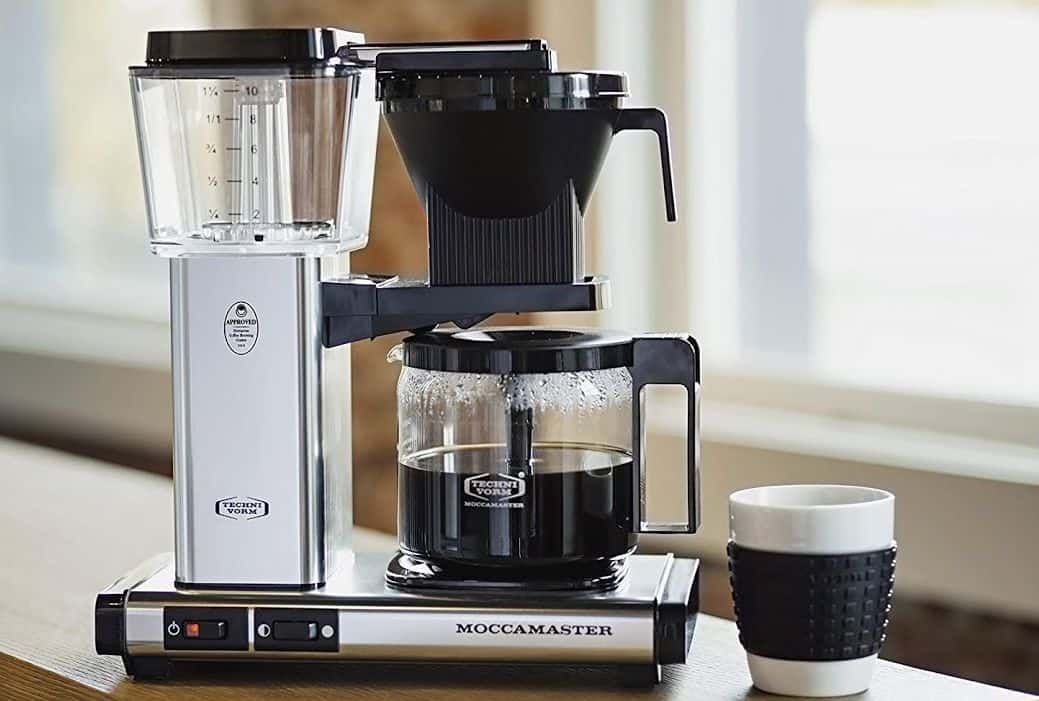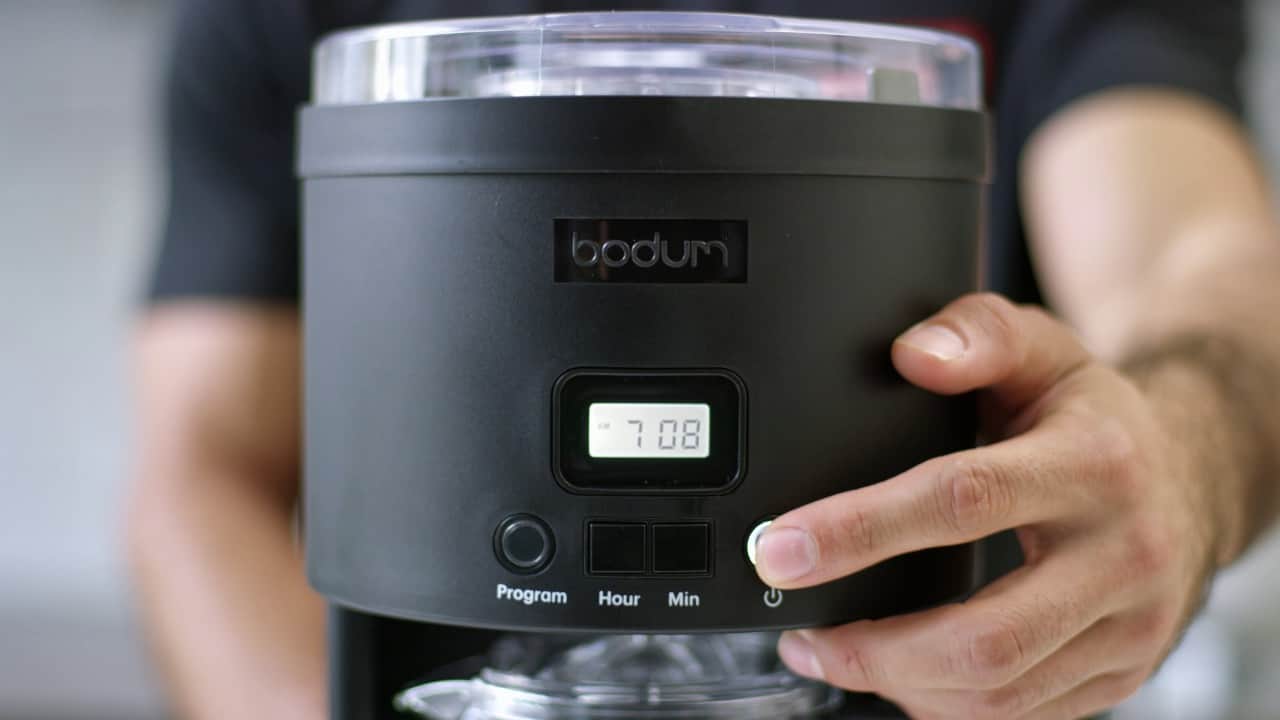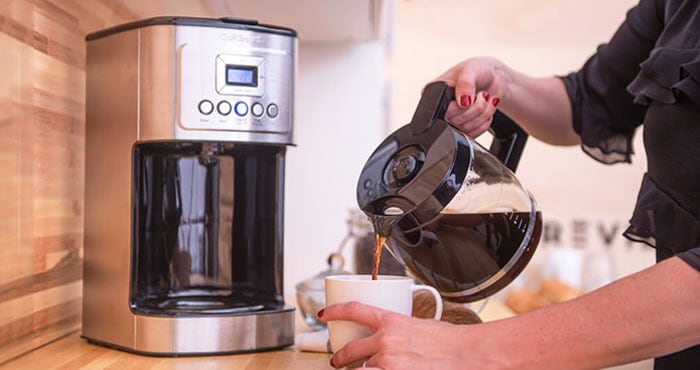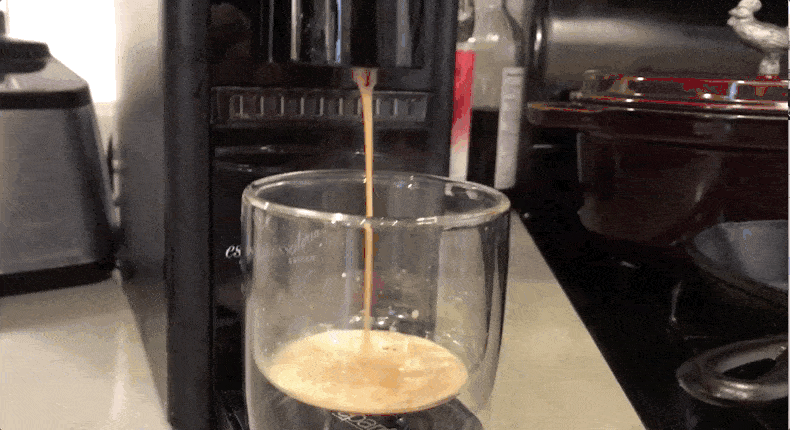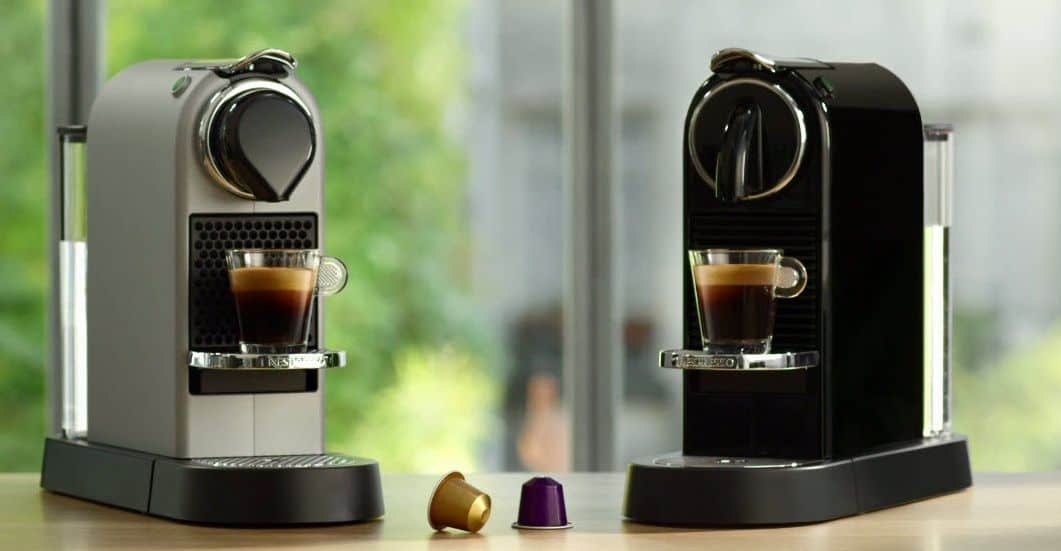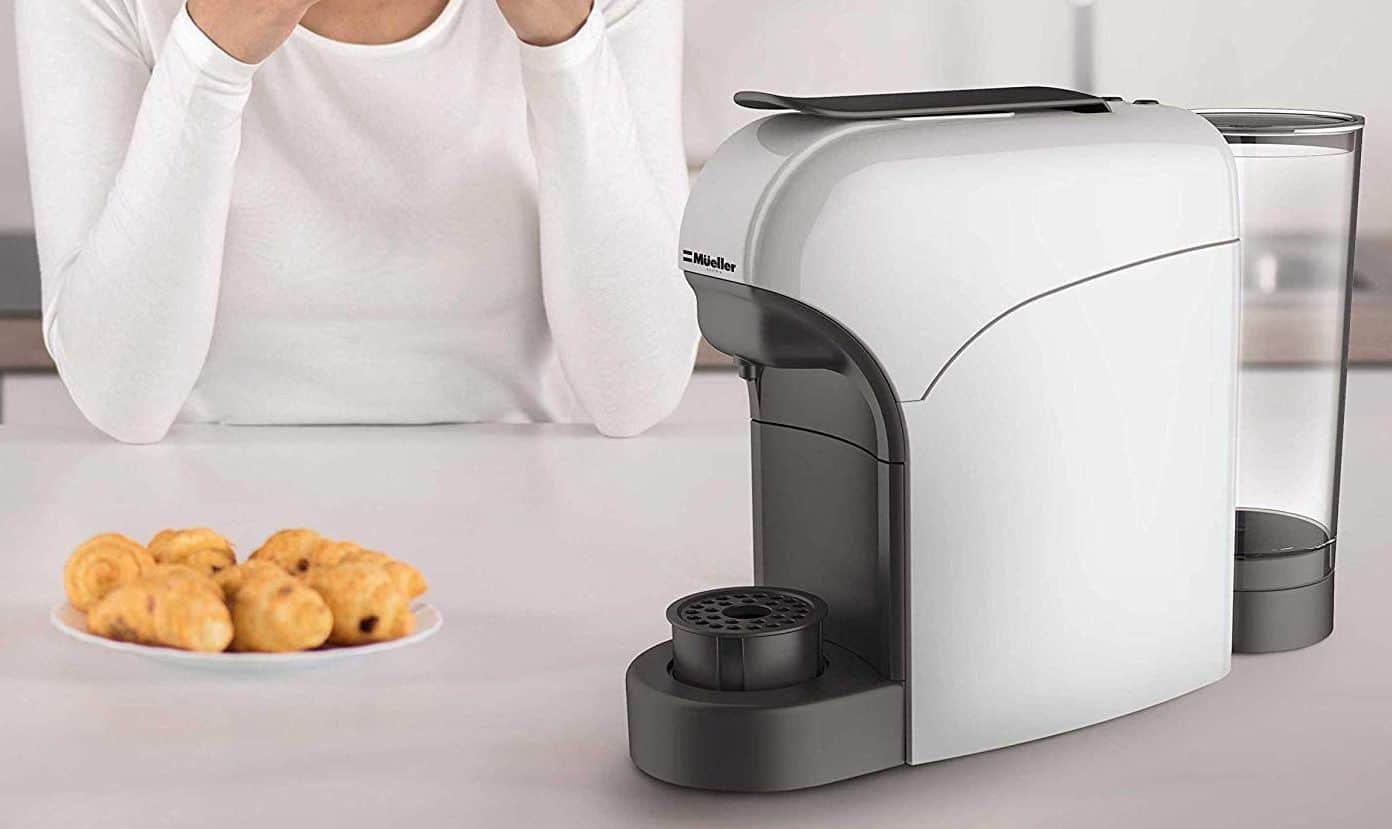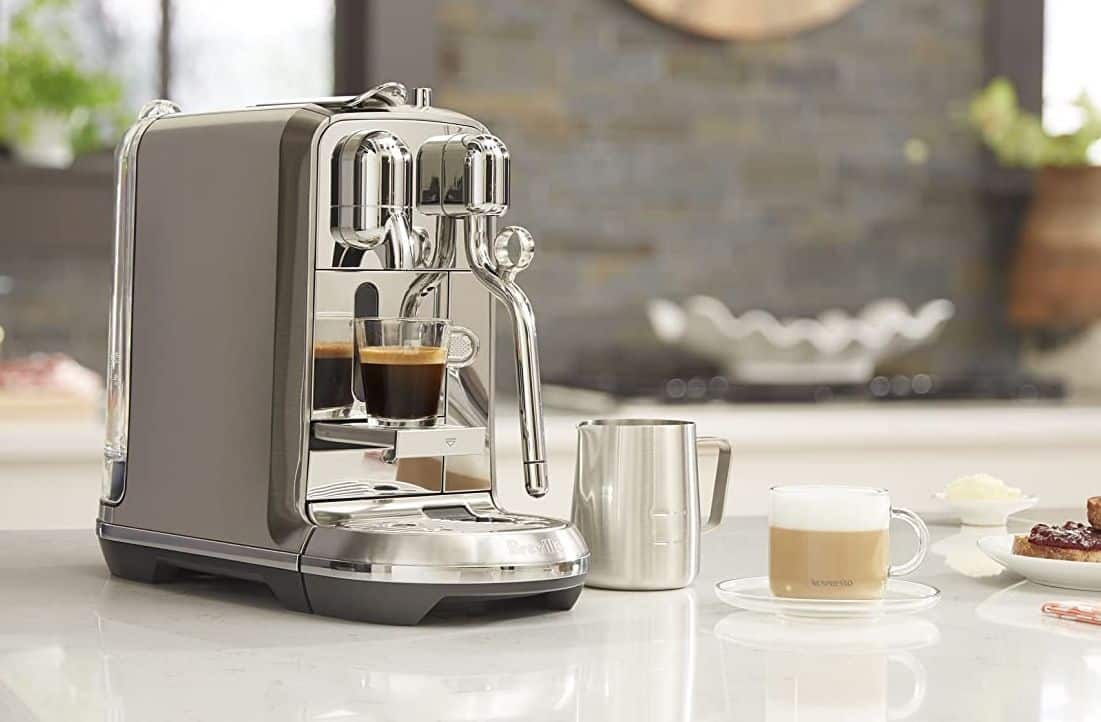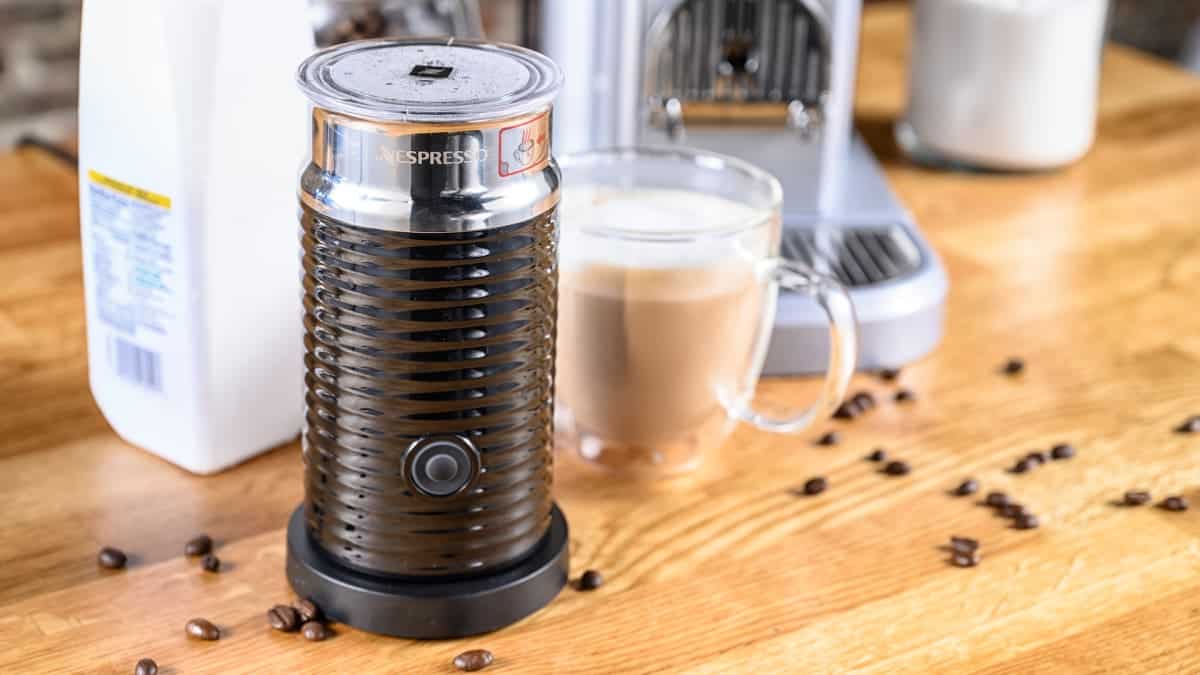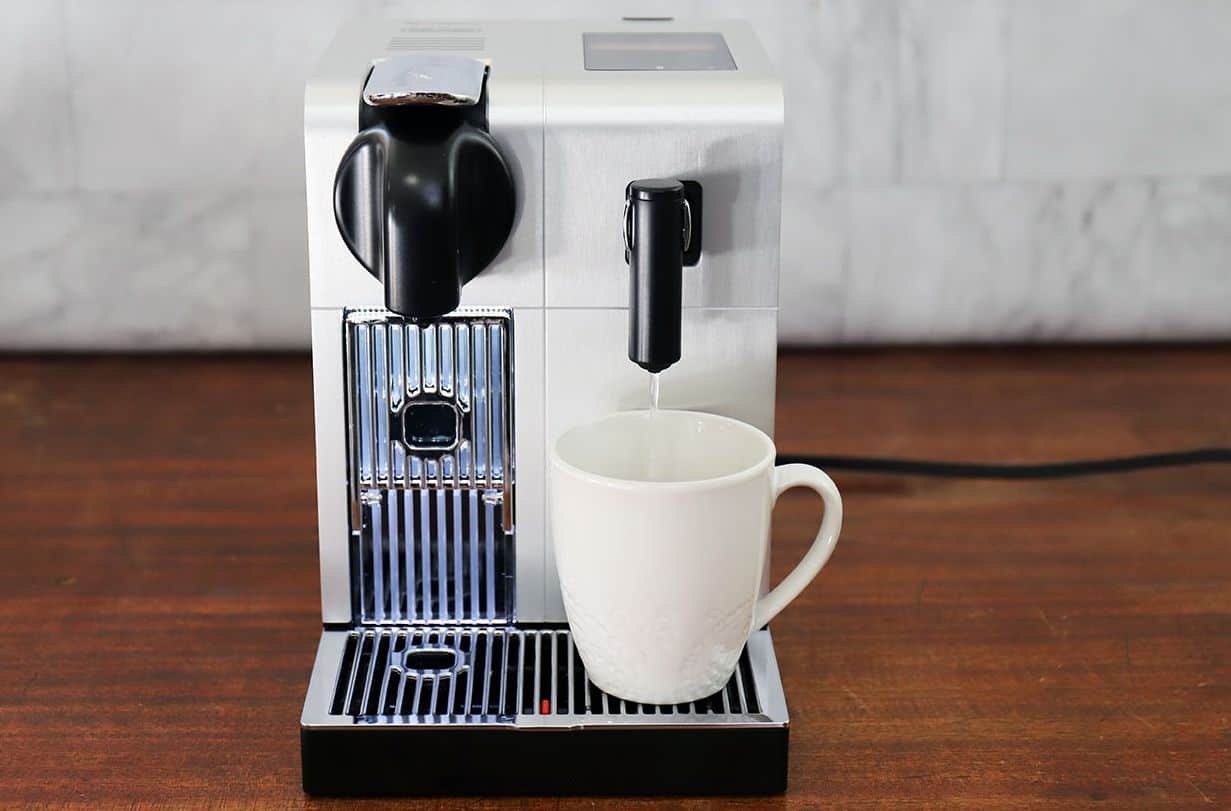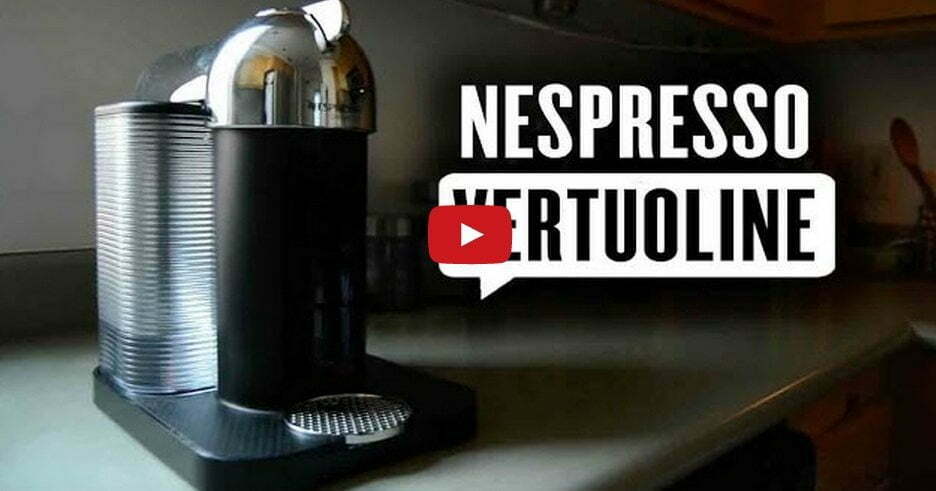Knowing how to clean a coffee maker with lemon juice allows you to skip harsh chemical products during your cleaning process. The citric acid in lemon juice is what makes it so efficient as a natural descaler.
KEY TAKEAWAYS:
- First, create your lemon water using fresh water and lemons. You can also use pre-extracted juice bought at the store if you have that on hand.
- From there, you’ll complete a regular brew cycle. You can run an additional brew cycle if you feel that it’s necessary to do so.
- This method might leave behind a distinct taste of lemons. You can avoid this by running clean water through the brew cycle a few times after cleaning.
You shouldn’t fear chemical products, however. Sometimes they’re entirely necessary for coffee stains or built-up mineral deposits.
Even the best coffee maker requires regular cleaning cycles to stay in tip-top shape. Learning about different coffee maker cleaning methods will keep your appliance working for years to come.
Why Use a Lemon Juice Solution to Clean Your Coffee Machine?
Using natural descalers is all the rage for eco-friendly folks with an affinity for coffee. A citric avid descaler recipe will work wonders if you don’t have the ingredients to clean your coffee maker with vinegar. The acidity of lemons cuts through mineral deposits with ease.
If you don’t have access to natural ingredients, learning how to clean a coffee maker with dish soap is the natural next step.
Insider Tip
Use a commercial descaling product first. After this, use your all-natural cleaning agent of choice to clean out any chemical residue that might be left.
How to Clean a Coffee Maker With Lemon Juice
Tools Needed: Lemon water solution, coffee maker
STEP 1
The first step is making a lemon mixture using fresh water. Preferably, use fresh lemons. If you can’t make lemon water, learn how to clean a coffee maker with vinegar instead. You can also use a bit of vinegar or baking soda with this method to maximize the efficacy of your cleaning cycles.
STEP 2
Once you have your mixture, set it aside. It’s essential to manually clean coffee makers before running the solution through the brewing process. Submerge your brew basket in soap and hot water to remove stuck-on coffee grounds and soften calcium deposits.
STEP 3
Now, fill the water reservoir of your coffee machine with lemon water. Once the water reservoir is full, run the normal brewing cycle. If you have the option to use a heavy brewing cycle, do that instead.
STEP 4
After your coffee machine finishes its brewing cycle, the cups of water should be full of mineral content. Keep running the descaling cycle until those cups of water are clear of mineral buildup.
STEP 5
You should be left with a pleasant lemon odor. If you think it might contaminate your daily cup of coffee, run plain, warm water through a complete brew cycle to negate the strong smell of citric acid.
Warning
Natural cleaning methods sound great but might not provide a proper cleaning. There is a time and place for using chemical-based products, so don’t fall victim to chemophobia.
F.A.Q.S
How can I clean my coffee maker with white vinegar?
White vinegar has powerful antibacterial properties. People often use it as an effective cleaning agent for eco-friendly cleaning solutions. To clean your coffee maker with vinegar, you’ll make a warm water and vinegar solution.
Will using a commercial product work?
Yes, and a commercial descaling product is one of the best cleaning methods out there. While using a vinegar solution is recommended, you might contaminate your appliance with a strong vinegar smell.
Is it essential to apply a cleaning mixture to the outside of my dirty machine?
Any list of coffee maker cleaning hacks should advise you to clean the entire appliance, including the outside. Since you touch the outside often, it’s a breeding ground for bacteria.
What can I use to clean without using a commercial product?
There are a few natural methods you can turn to:
- A table saltwater mixture
- Some hot, soapy water
- Baking soda dissolved in clean water
- A cup of hydrogen peroxide and plain water
STAT: Citric acid (2-hydroxy-1,2,3-propanetricar-boxylic acid) is a weak tricarboxylic acid that is naturally concentrated in citrus fruits. (source)
REFERENCES:
- https://www.healthvermont.gov/sites/default/files/documents/pdf/ENV_HH_LivingGreenGuide.pdf
- https://ehs.ncpublichealth.com/hhccehb/cehu/lead/docs/CleanGreenFinal.pdf
- https://www.researchgate.net/publication/318360553_Lemon_A_Versatile_Fruit_of_Multiple_Usesr
- https://www.mdpi.com/2223-7747/9/1/119/htm
- https://www.ncbi.nlm.nih.gov/pmc/articles/PMC2637791/















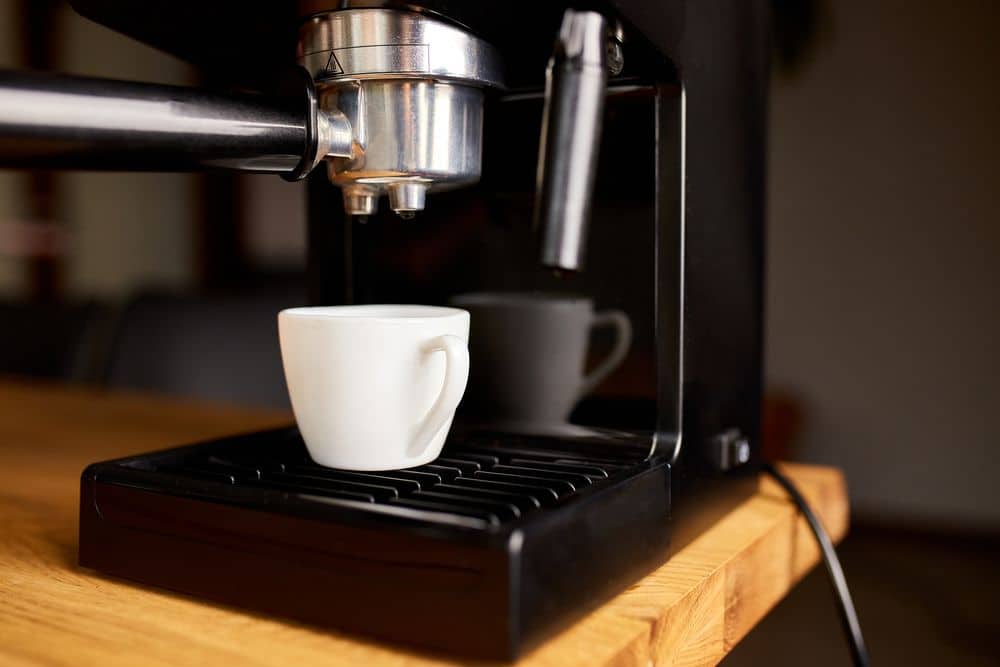
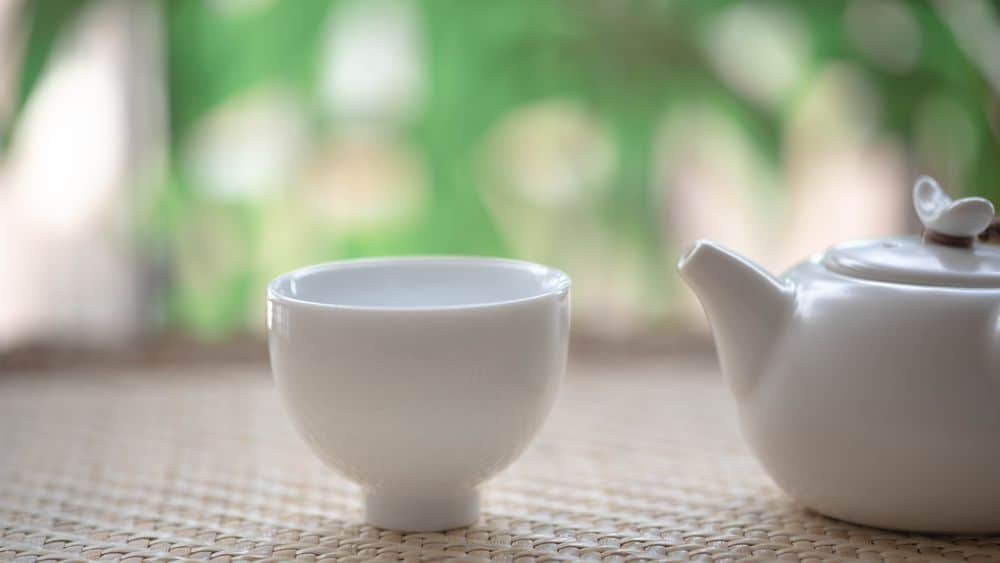
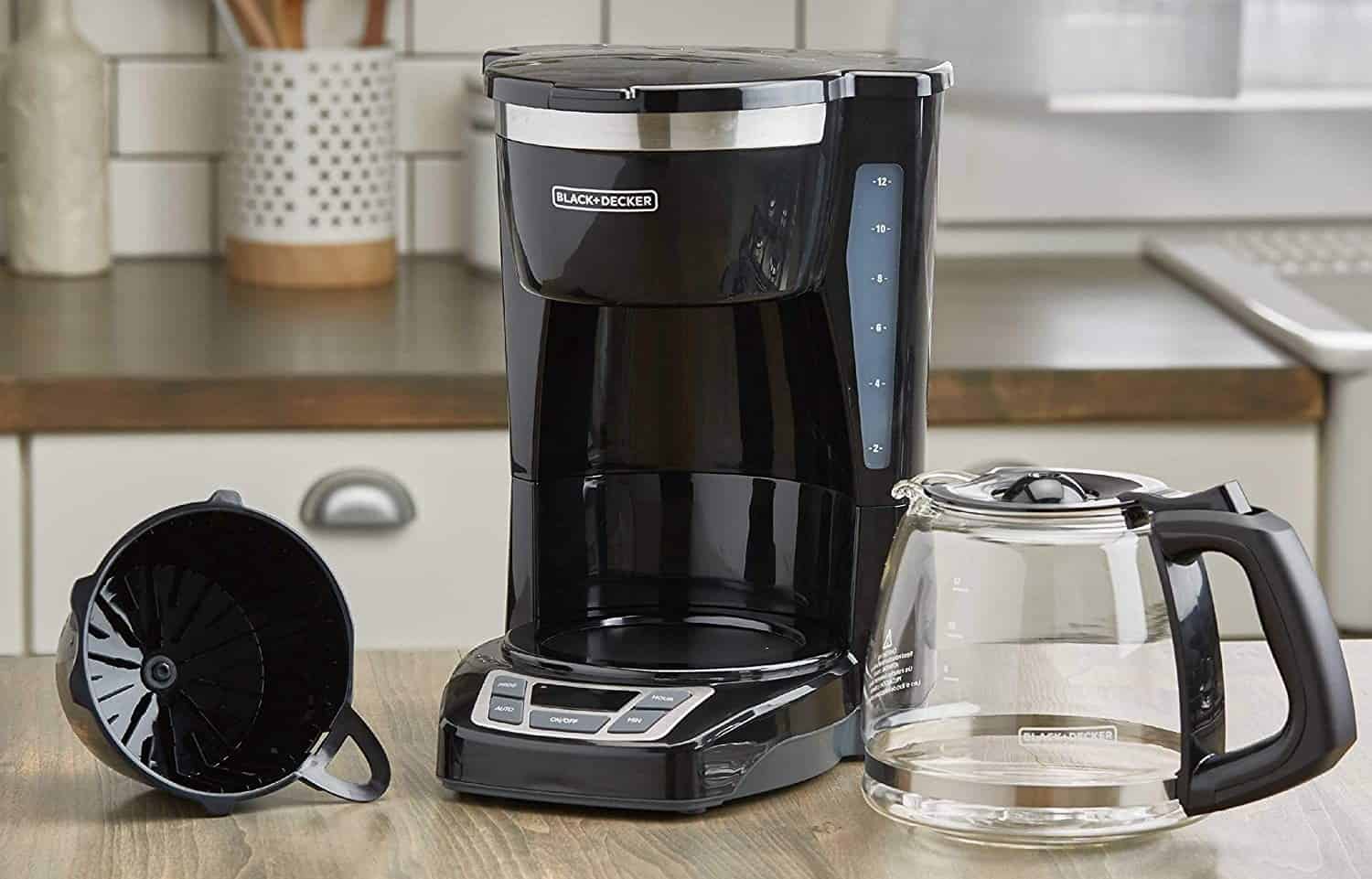
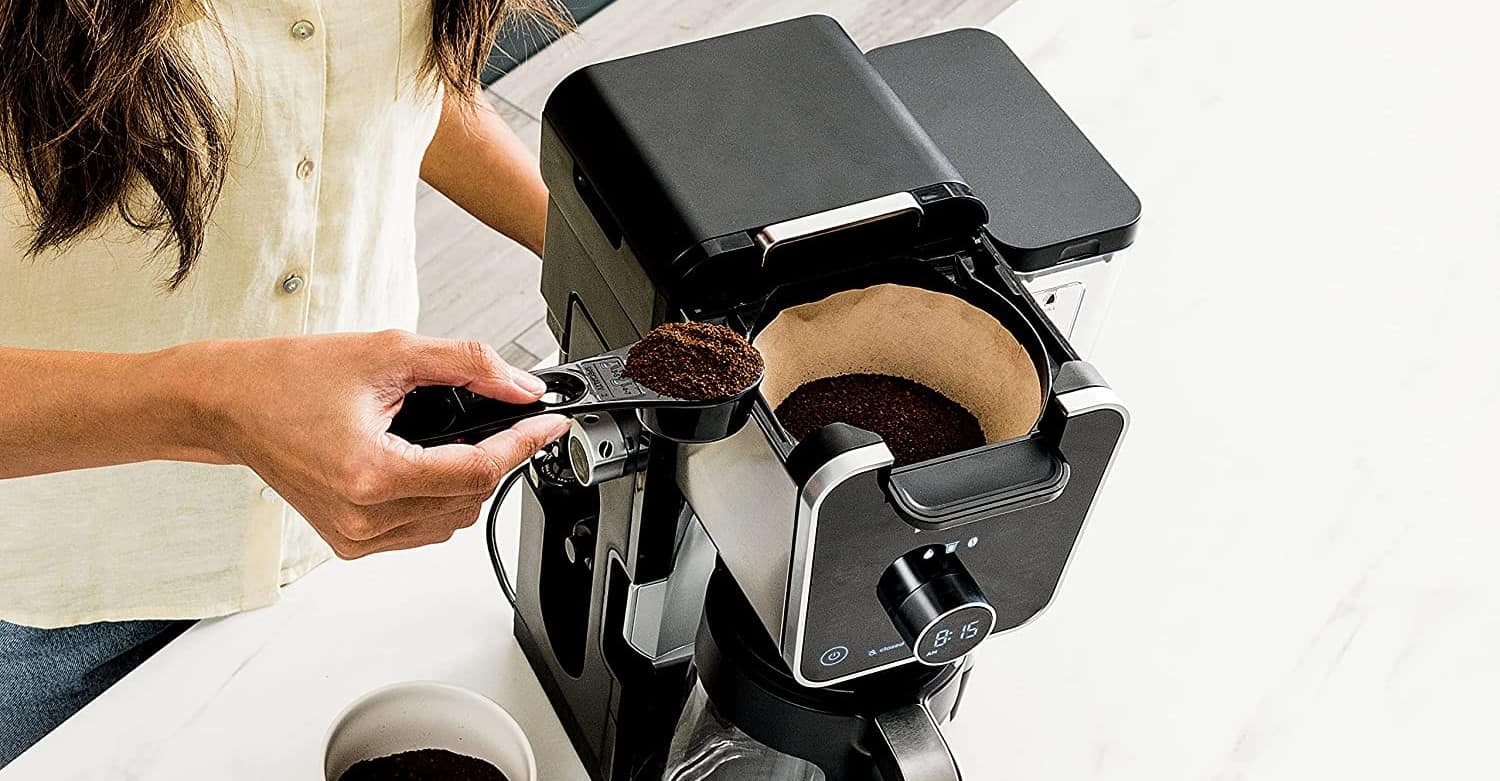
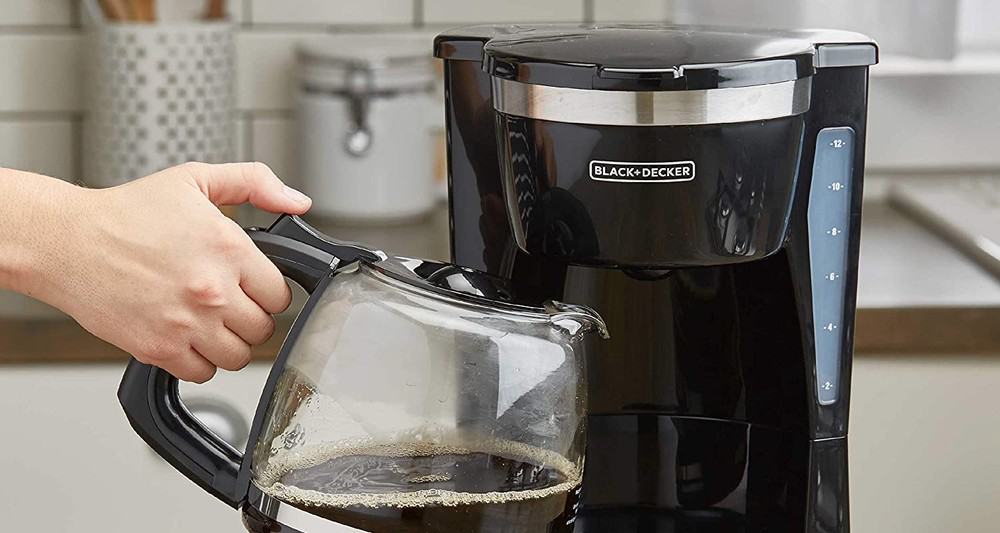
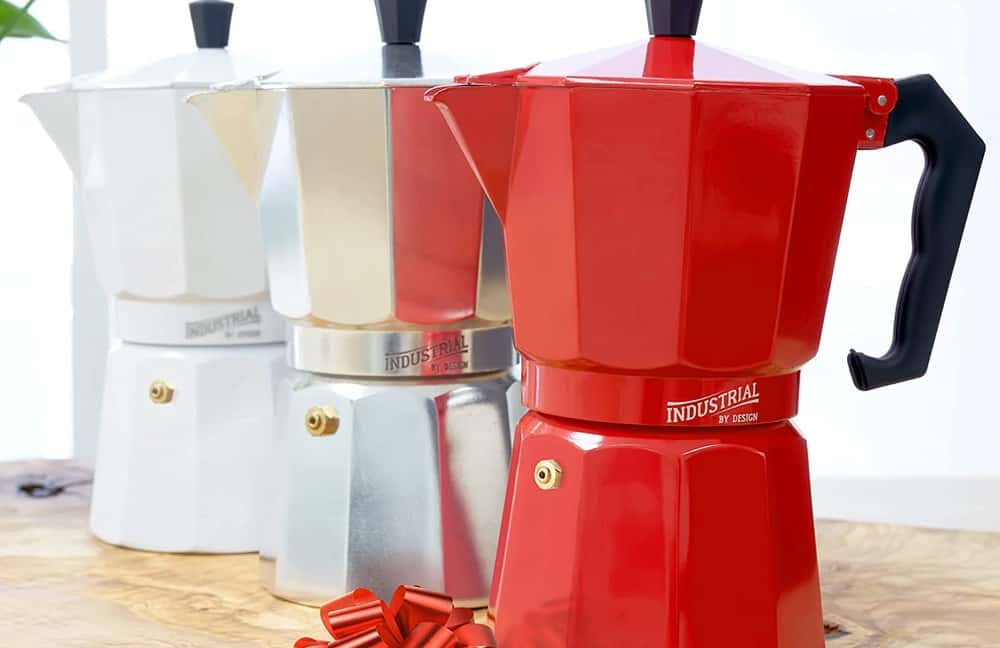
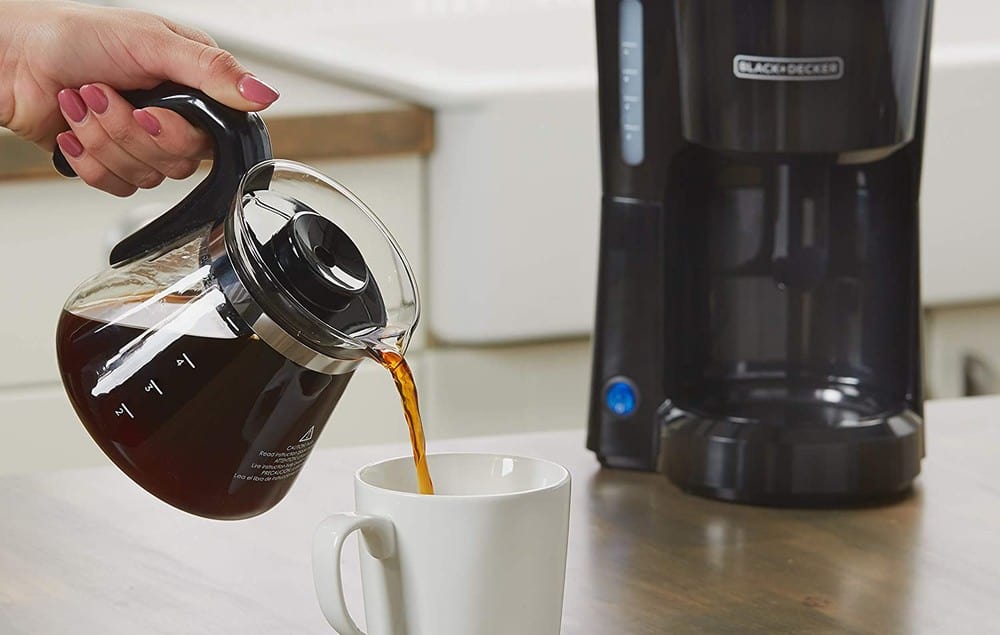
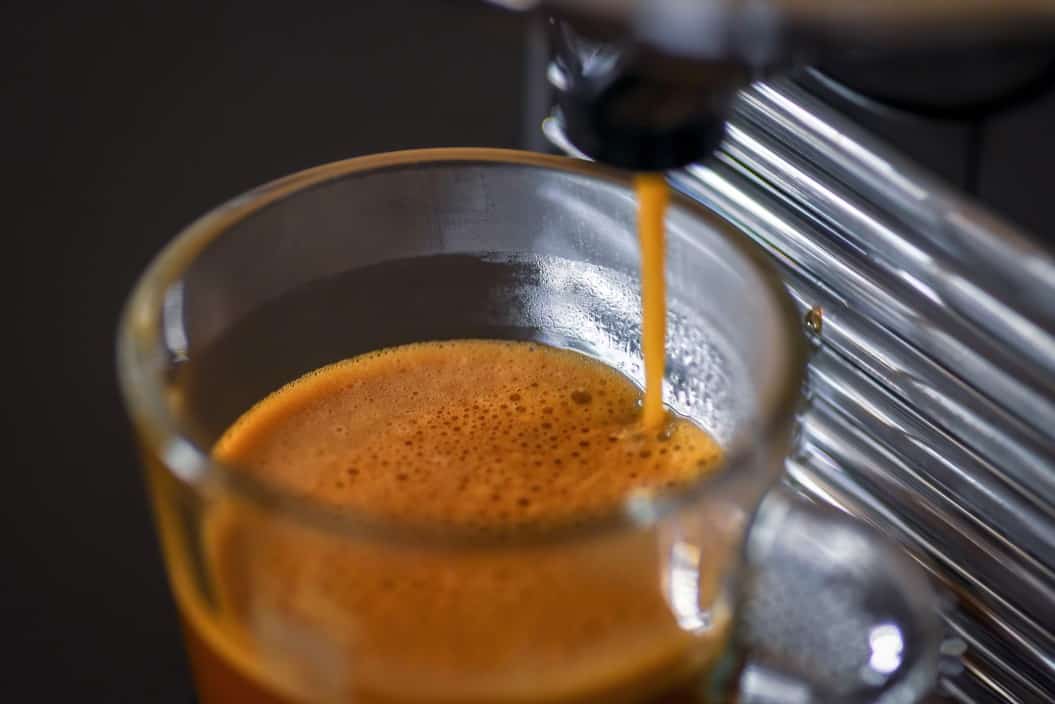


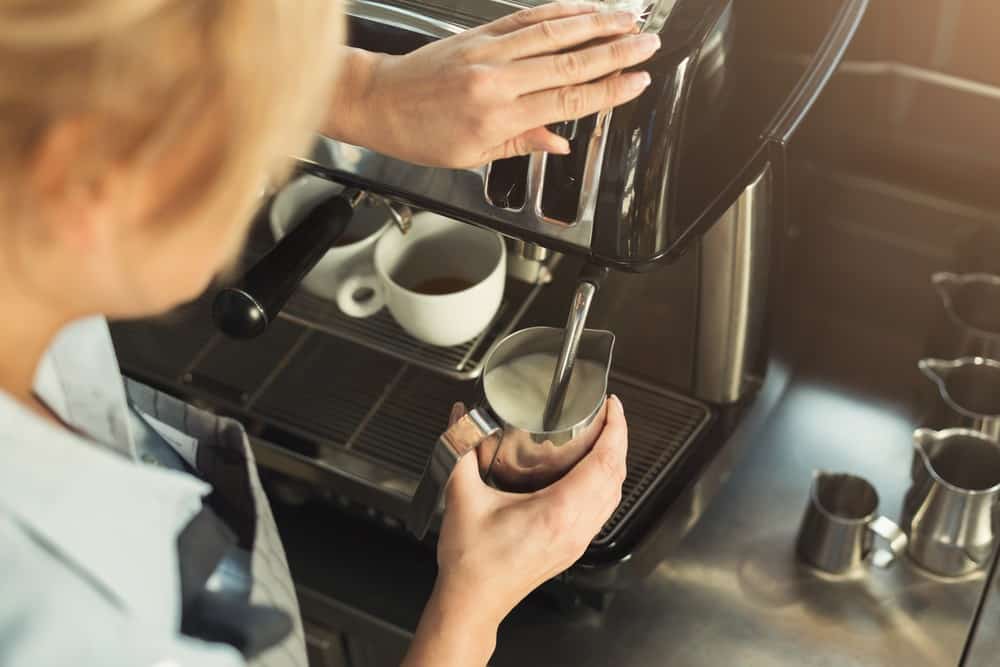
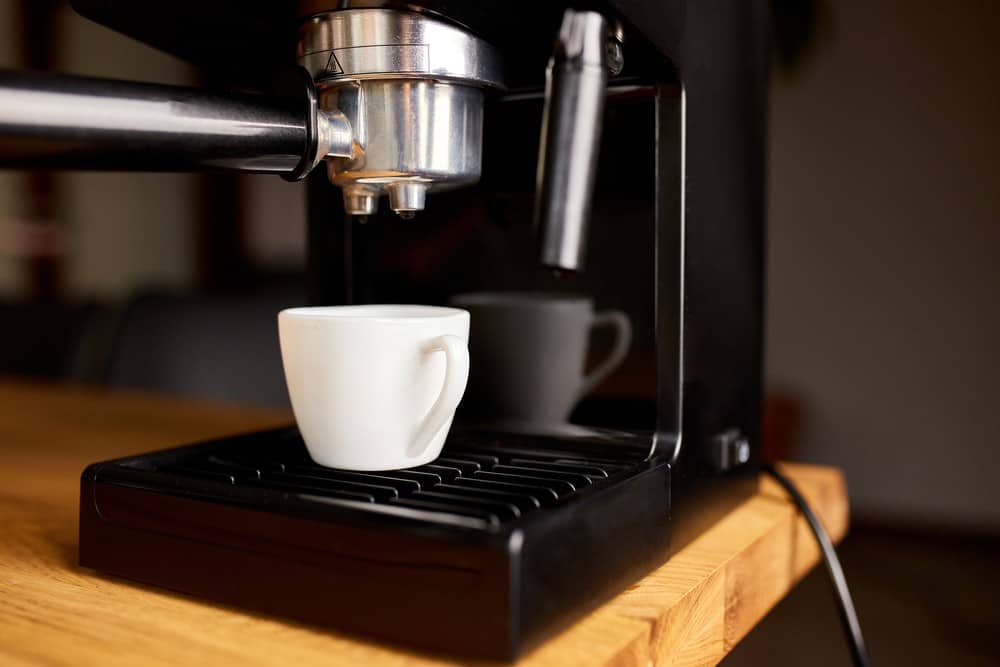
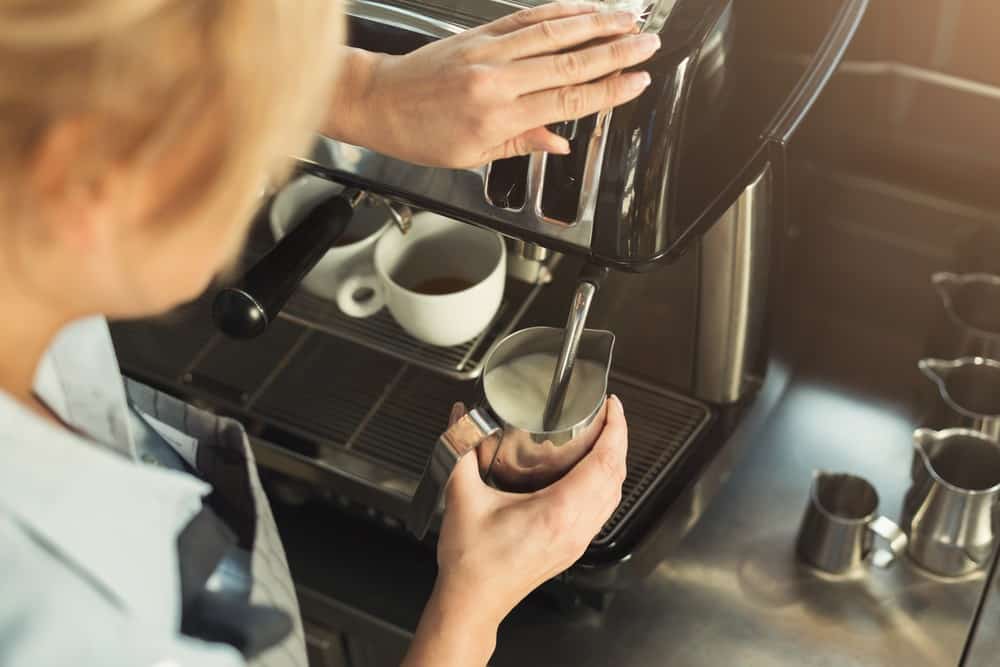
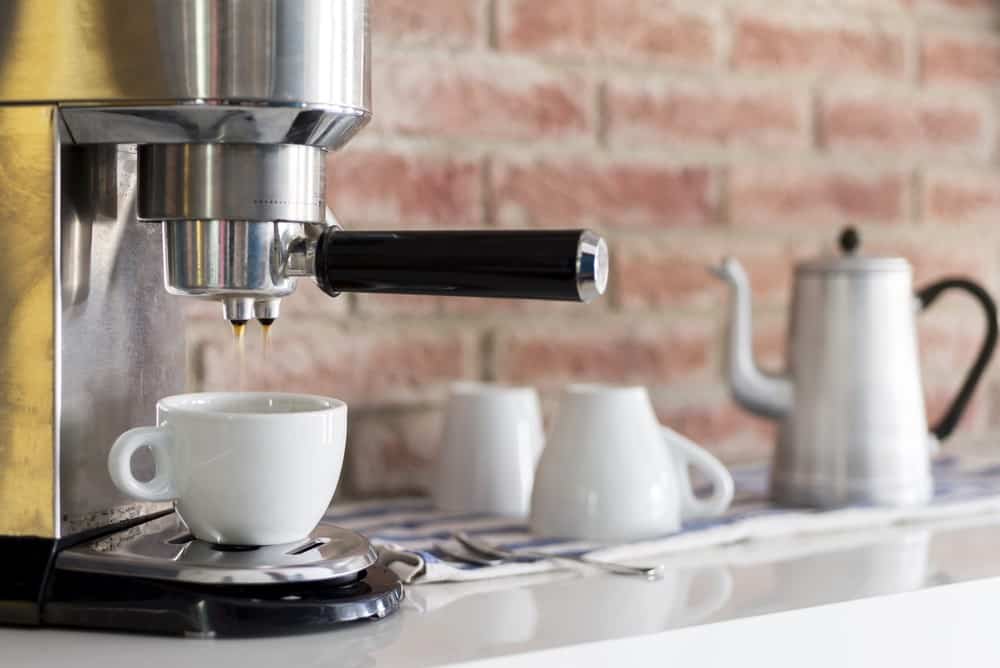
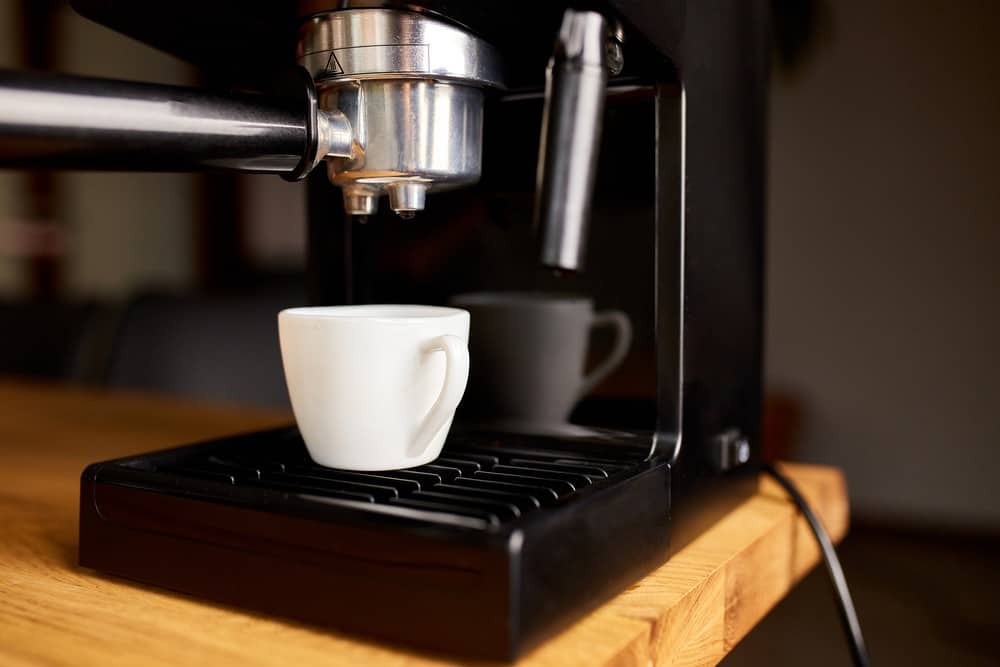
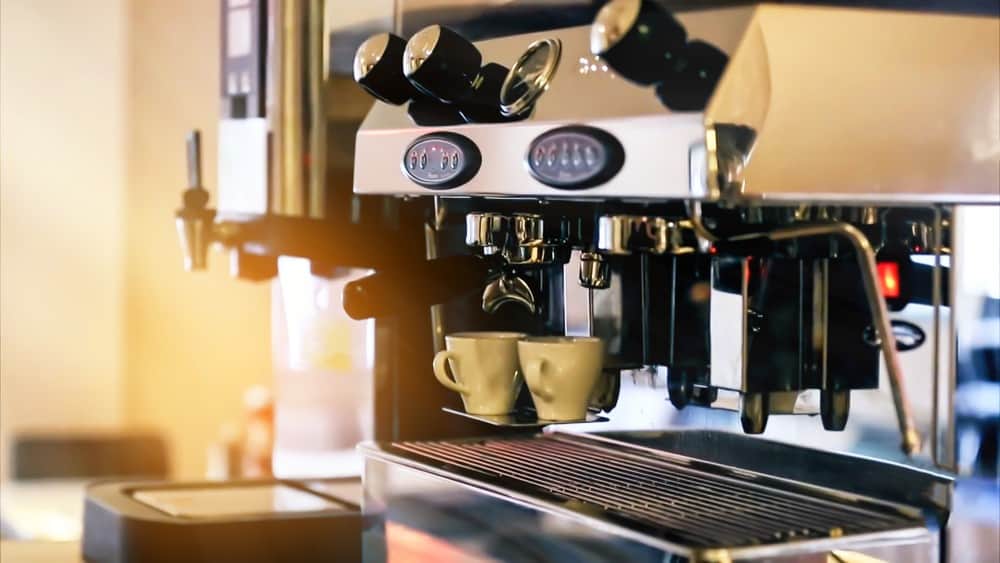
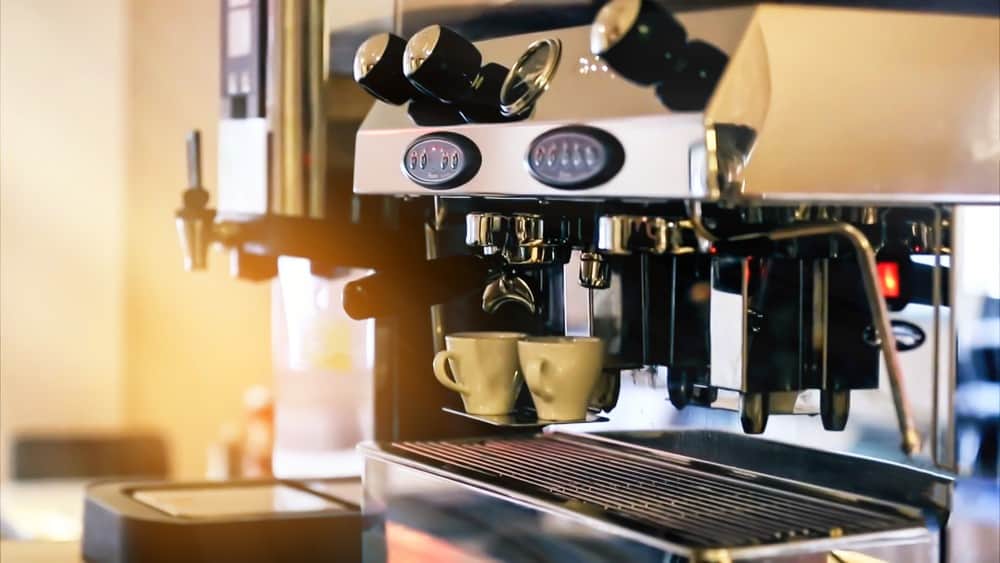
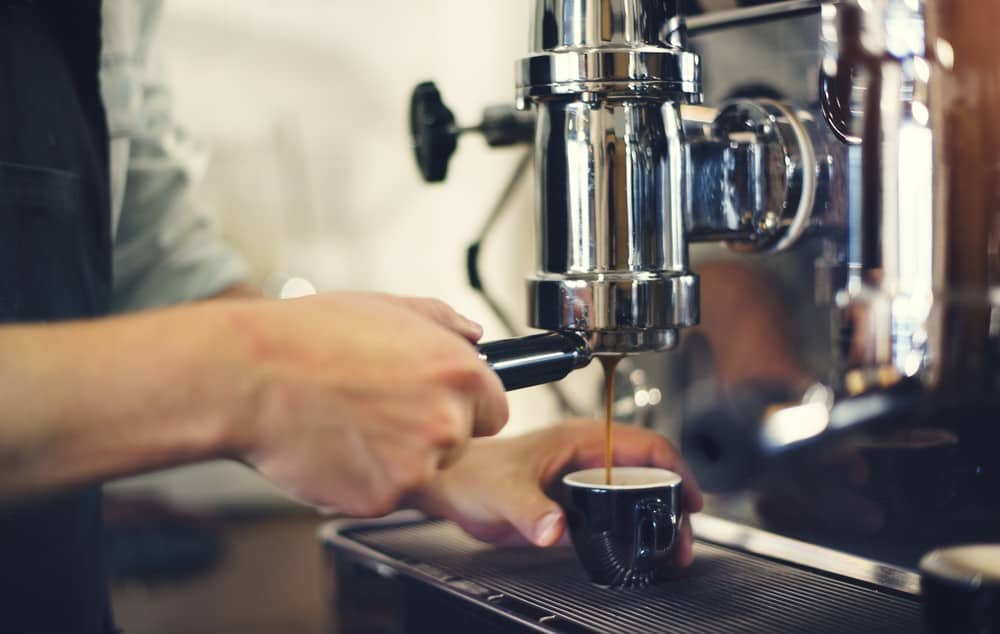
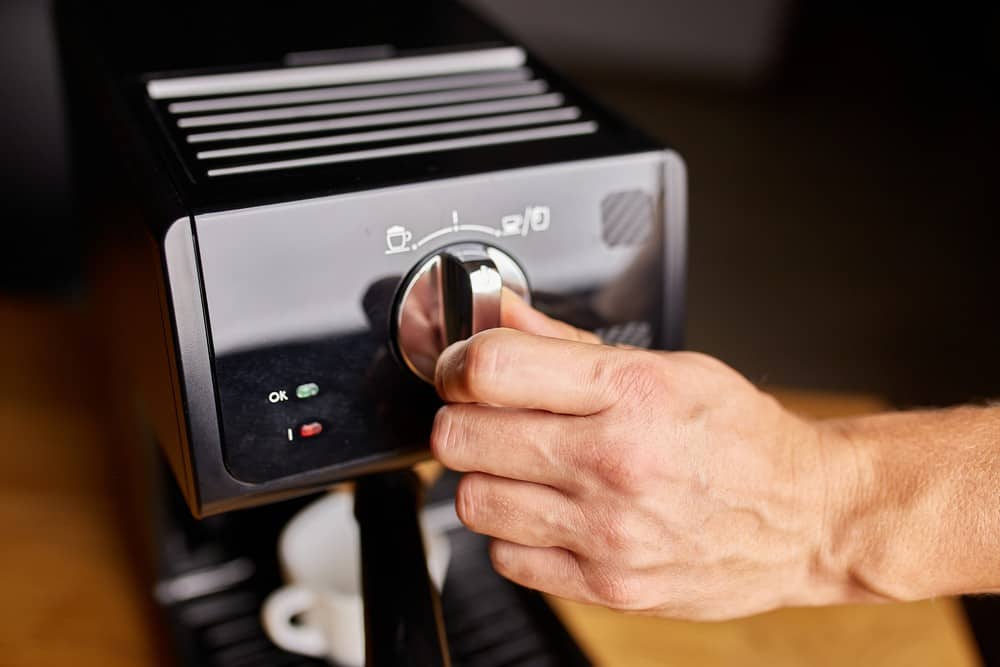
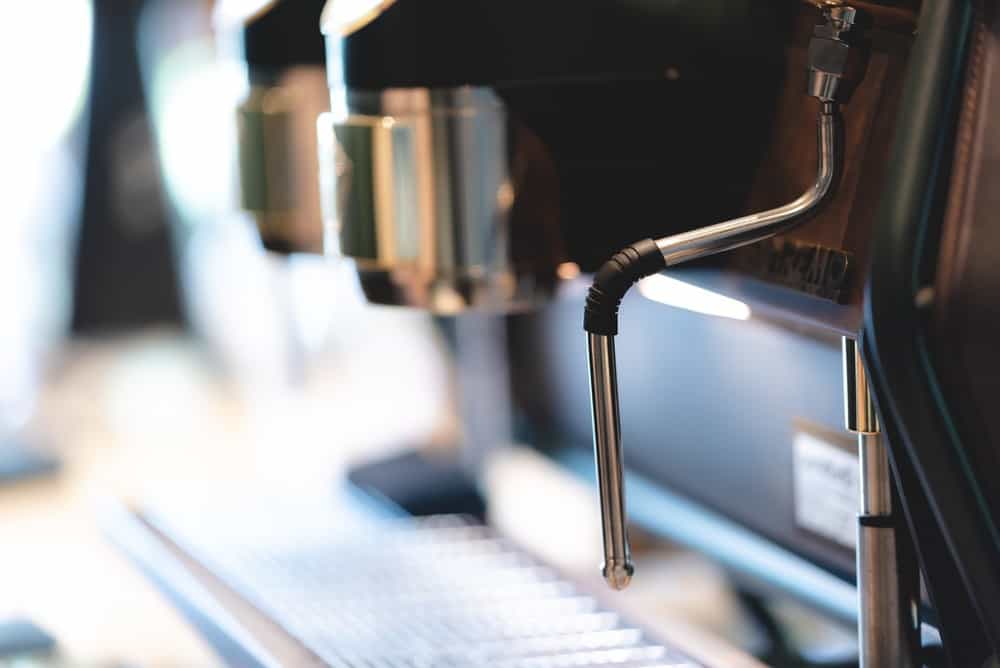
![Best Keurig Alternatives in [year] 27 Best Keurig Alternatives in 2026](https://www.gadgetreview.dev/wp-content/uploads/best-keurig-alternative-image.jpg)
![Best Semi Automatic Espresso Machines in [year] 28 Best Semi Automatic Espresso Machines in 2026](https://www.gadgetreview.dev/wp-content/uploads/best-semi-automatic-espresso-machine-image.jpg)
![Best Coffee and Espresso Makers in [year] 29 Best Coffee and Espresso Makers in 2026](https://www.gadgetreview.dev/wp-content/uploads/best-coffee-and-espresso-maker-image.jpg)
![Best Kitchen Appliances in [year] ([month] Reviews) 30 Best Kitchen Appliances in 2026 (January Reviews)](https://www.gadgetreview.dev/wp-content/uploads/best-kitchen-appliances.jpg)
![Quietest Coffee Makers in [year] 31 Quietest Coffee Makers in 2026](https://www.gadgetreview.dev/wp-content/uploads/quietest-coffee-maker-image.jpg)
![Best Prosumer Espresso Machines in [year] 32 Best Prosumer Espresso Machines in 2026](https://www.gadgetreview.dev/wp-content/uploads/71ytF6efAlL._AC_SL1500_.jpg)
![Best Single Serve Coffee Maker No Pods in [year] 33 Best Single Serve Coffee Maker No Pods in 2026](https://www.gadgetreview.dev/wp-content/uploads/best-k-pod-coffee-image-1.jpg)
![Best Coffee Makers for Hard Water in [year] 34 Best Coffee Makers for Hard Water in 2026](https://www.gadgetreview.dev/wp-content/uploads/best-coffee-maker-for-hard-water-image.jpg)
![Best Dual Boiler Espresso Machines in [year] 35 Best Dual Boiler Espresso Machines in 2026](https://www.gadgetreview.dev/wp-content/uploads/best-dual-boiler-espresso-machine-image.jpg)
![Best Coffee Makers for RV in [year] 36 Best Coffee Makers for RV in 2026](https://www.gadgetreview.dev/wp-content/uploads/best-coffee-maker-for-rv-image.jpg)
![Best Ninja Coffee Makers in [year] 37 Best Ninja Coffee Makers in 2026](https://www.gadgetreview.dev/wp-content/uploads/best-ninja-coffee-maker-image.jpg)
![Best Breville Espresso Machines in [year] 38 Best Breville Espresso Machines in 2026](https://www.gadgetreview.dev/wp-content/uploads/best-breville-espresso-machine-image.jpg)
![Best 5 Cup Coffee Makers in [year] 39 Best 5 Cup Coffee Makers in 2026](https://www.gadgetreview.dev/wp-content/uploads/best-5-cup-coffee-maker-image.jpg)
![Best Commercial Coffee Makers in [year] 40 Best Commercial Coffee Makers in 2026](https://www.gadgetreview.dev/wp-content/uploads/best-commercial-coffee-maker-image.jpg)
![Best Commercial Espresso Machine for a Small Coffee Shop in [year] 41 Best Commercial Espresso Machine for a Small Coffee Shop in 2026](https://www.gadgetreview.dev/wp-content/uploads/best-commercial-espresso-machine-small-coffee-shop-image.jpg)
![Best Coffee for Moka Pot in [year] 42 Best Coffee for Moka Pot in 2026](https://www.gadgetreview.dev/wp-content/uploads/best-coffee-for-moka-pot-image.jpg)
![Best USA Made Coffee Makers in [year] 43 Best USA Made Coffee Makers in 2026](https://www.gadgetreview.dev/wp-content/uploads/best-usa-made-coffee-makers-image.jpg)
![Fastest Coffee Makers in [year] 44 Fastest Coffee Makers in 2026](https://www.gadgetreview.dev/wp-content/uploads/fastest-coffee-maker-image.jpg)
![Best SCAA Certified Coffee Makers in [year] 45 Best SCAA Certified Coffee Makers in 2026](https://www.gadgetreview.dev/wp-content/uploads/best-scaa-certified-coffee-maker-image.jpg)
![Best Smart Coffee Makers in [year] 46 Best Smart Coffee Makers in 2026](https://www.gadgetreview.dev/wp-content/uploads/best-smart-coffee-maker-image.jpg)
